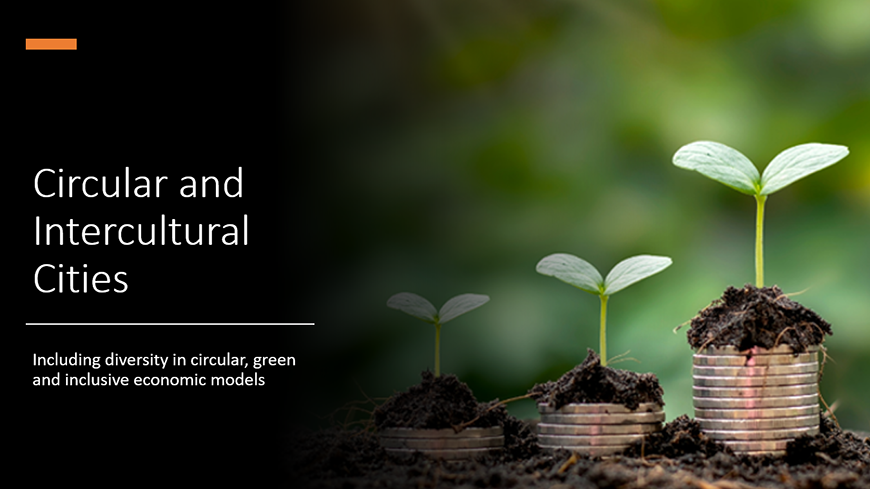However, while there is extensive guidance, scientific knowledge, legally binding instruments, and relatively big funding for a more sustainable development of our societies, there are still important gaps in dealing with the green transition in a way that is truly inclusive and offers solutions to social challenges – and vice versa.
With this in mind, the Intercultural Cities programme started exploring a number of specific fields which local authorities could better exploit to bridge the ecological and the intercultural agenda. One of these is circular economy, an economic model where value is generated through continuous circulation of resources, with consideration for the planetary boundaries, and formulation of solutions from a systems and human-centric design perspective. However, although circular initiatives can have social benefits, these are not a given.
The ICC Policy brief on “Circular and Intercultural Cities” is a resource that cities can use to learn how best to integrate the agendas of interculturalism and green development through the lens of the circular economy concept.
- Policy brief (French, Italian, Portuguese and Spanish versions coming soon)
More information:
- Sustainable cities special page
- Webinar on “Sustainable cities: how to make them more inclusive? An eco-intercultural transition”: Draft agenda | Contact us to attend




